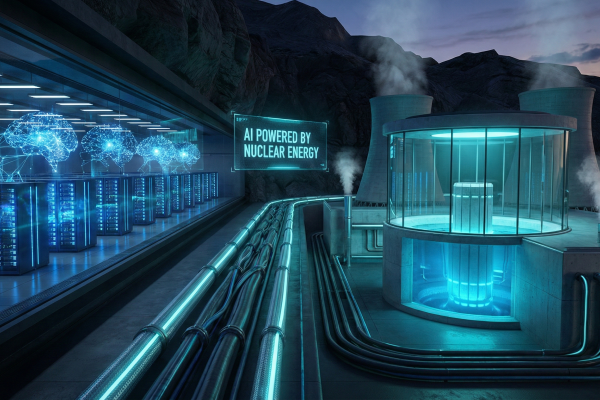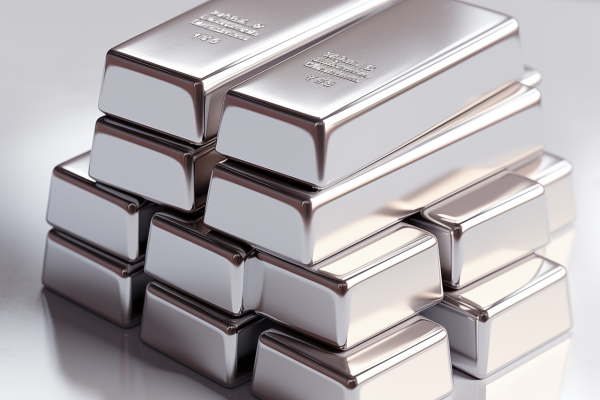July 3rd, 2025 | 07:45 CEST
Explosive atmosphere in the lithium triangle – Europe stands to benefit: Albemarle, European Lithium, Mercedes-Benz
Electric vehicles need lithium. However, it is not that easy to obtain. According to a report in Die Welt, two companies from China and Russia are currently encountering difficulties in Bolivia. The reason: indigenous peoples have launched a wave of protests and are doing everything they can to prevent lithium mining in the country. Germany had already failed with a similar initiative in Bolivia. The indigenous peoples along the border with Argentina see themselves as the sole and rightful owners of the "white gold." As a result, the "lithium triangle" between Bolivia, Argentina, and Chile, which is home to more than half of the world's lithium reserves, is increasingly becoming a no-go area for companies. We explain the alternatives available and who stands to benefit the most.
time to read: 3 minutes
|
Author:
Nico Popp
ISIN:
ALBEMARLE CORP. DL-_01 | US0126531013 , EUROPEAN LITHIUM LTD | AU000000EUR7 , MERCEDES-BENZ GROUP AG | DE0007100000
Table of contents:

"[...] In 2020, the die is finally cast in the automotive industry towards electromobility. [...]" Dirk Harbecke, Executive Chairman, Rock Tech Lithium Inc.
Author
Nico Popp
At home in Southern Germany, the passionate stock exchange expert has been accompanying the capital markets for about twenty years. With a soft spot for smaller companies, he is constantly on the lookout for exciting investment stories.
Tag cloud
Shares cloud
Albemarle and Co. are looking for alternatives
In January 2024, indigenous groups temporarily blocked access to the Salar de Atacama – the world's largest source of lithium – in protest against new mining contracts from which they felt excluded. Albemarle and SQM, which mine lithium there, were able to continue working as normal for the time being; however, the incident highlights the risk of unilateral dependencies. At the same time, the EU reports that lithium demand is rising exponentially due to the boom in electric vehicles – EU Commission President Ursula von der Leyen predicted back in 2023 that demand for lithium would be 17 times higher than it is today. Although electric vehicle sales are currently sluggish, demand is expected to continue rising. Europe is anything but diversified in this regard: as recently as 2023, Der Spiegel reported that European companies source 97% of their lithium from China. This dependence is likely to remain high today.
Mercedes-Benz relies on lithium from various sources
Companies such as Albemarle, which for years exemplified the gold rush atmosphere in South America's lithium triangle, are already looking for alternatives. In Australia, Albemarle holds shares in the Greenbushes mine, disused lithium mines like Kings Mountain are to be revived in the US, and the Company is also looking into acquisitions – all this is being done to secure multiple sources of raw materials and cushion the impact of supply shortages. German automaker Mercedes-Benz recognized the problems with lithium supply early on and signed a supply agreement with a Canadian company in 2022, whose processing plant is expected to deliver around 24,000 tons of lithium hydroxide per year from Brandenburg starting in 2026. The raw material for this comes from mines with a sustainable concept. Lithium recycling is also set to play a major role for Mercedes-Benz. The automaker has built a battery factory in Kuppenheim, Baden, for this purpose.
European Lithium: The Wolfsberg mine in Austria set to start production in 2027
Mercedes-Benz is consistently pursuing a multi-source strategy for lithium. In view of rising freight rates, customs duties, and increasing geopolitical conflicts, Europe is once again becoming a stronger focus for the industry. Bavarian sports car manufacturer BMW has already signed a purchase agreement with European Lithium. From 2027, European Lithium plans to mine the "white gold" in Wolfsberg, Austria. Current media reports estimate that Wolfsberg alone could account for around 4.5% of global lithium production. A plant for converting Austrian ore into lithium hydroxide is already being built in Saudi Arabia in collaboration with Arabian New Energy. Thanks to the low energy prices there, processing costs are expected to be a whopping 80% below European levels.
The start of production at the end of 2027 could come at just the right time for European Lithium – the Company expects European demand for lithium to rise by 1,200% by the end of the decade. The issue of diversification is also likely to be even more important to major car manufacturers since the outbreak of the war in Ukraine and Trump's presidency. It cannot be ruled out that European Lithium will be able to convince other European partners besides BMW. The mine's location, not far from Austria's capital, Vienna, and the low costs of further processing the lithium in Saudi Arabia are good arguments in times of growing uncertainty. Although supply from the South American "lithium triangle" has not yet dried up, an escalation of the conflict between indigenous peoples and lithium producers does not seem unlikely - here too, US President Donald Trump has set new standards with his protectionist policies and some reckless decisions.
Europe becomes the new lithium hotspot
All market researchers and analysts expect lithium demand to rise sharply by 2030. However, production has so far been concentrated in China and South America. Lithium buyers will want to reduce this regional risk. Europe has a special role to play in this context. Here, legal certainty, proximity to automotive production sites, and low energy costs thanks to cooperation agreements in the Middle East create an unparalleled mix. Given this outlook, European Lithium shares are promising.
Conflict of interest
Pursuant to §85 of the German Securities Trading Act (WpHG), we point out that Apaton Finance GmbH as well as partners, authors or employees of Apaton Finance GmbH (hereinafter referred to as "Relevant Persons") may hold shares or other financial instruments of the aforementioned companies in the future or may bet on rising or falling prices and thus a conflict of interest may arise in the future. The Relevant Persons reserve the right to buy or sell shares or other financial instruments of the Company at any time (hereinafter each a "Transaction"). Transactions may, under certain circumstances, influence the respective price of the shares or other financial instruments of the Company.
In addition, Apaton Finance GmbH is active in the context of the preparation and publication of the reporting in paid contractual relationships.
For this reason, there is a concrete conflict of interest.
The above information on existing conflicts of interest applies to all types and forms of publication used by Apaton Finance GmbH for publications on companies.
Risk notice
Apaton Finance GmbH offers editors, agencies and companies the opportunity to publish commentaries, interviews, summaries, news and the like on news.financial. These contents are exclusively for the information of the readers and do not represent any call to action or recommendations, neither explicitly nor implicitly they are to be understood as an assurance of possible price developments. The contents do not replace individual expert investment advice and do not constitute an offer to sell the discussed share(s) or other financial instruments, nor an invitation to buy or sell such.
The content is expressly not a financial analysis, but a journalistic or advertising text. Readers or users who make investment decisions or carry out transactions on the basis of the information provided here do so entirely at their own risk. No contractual relationship is established between Apaton Finance GmbH and its readers or the users of its offers, as our information only refers to the company and not to the investment decision of the reader or user.
The acquisition of financial instruments involves high risks, which can lead to the total loss of the invested capital. The information published by Apaton Finance GmbH and its authors is based on careful research. Nevertheless, no liability is assumed for financial losses or a content-related guarantee for the topicality, correctness, appropriateness and completeness of the content provided here. Please also note our Terms of use.




